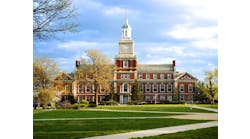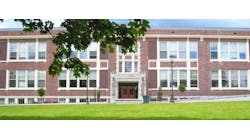From The Los Angeles Times: The use of fraudulent addresses to enroll in the Beverly Hills (Calif.) school district is an age-old problem, according to district officials. But such deceptions soon may be harder to carry out under a proposed plan to recertify every family in the 4,900-student district and expel those who have been lying about where they live. The district has a full-time employee who investigates cases of questionable residency, and about 150 students annually are asked to leave. But there may be hundreds more students using fake addresses to attend school illegally, officials say.
Earlier from The Los Angeles Times: Hundreds of students attending schools in Beverly Hills, Calif., will have to find new campuses in the fall after a unanimous school board vote ended special permits for many children who live outside the city. The board did agree to allow all current high school students to continue applying for permits each year, an action that won applause. This year's seventh graders will be allowed to graduate from middle school next year. But students in elementary school and eighth grade will not be allowed to return to district schools for the 2010-2011 academic year unless their families move into the city.
DECEMBER 2009:...from The New York Times: The Beverly Hills (Calif.) school board intends to do away with hundreds of slots reserved for nonresident children, most of whom live in nearby neighborhoods of Los Angeles where the homes are nice but the city’s public school system is deeply distressed. The students used to be a financial boon for Beverly Hills, bringing millions of dollars in state aid with them. But California’s budget crisis is changing the way schools are financed in many wealthy cities, suddenly turning the out-of-towners into money losers.
MARCH 2009: After months of rancorous debate about what to do with non-Beverly Hills residents who attend the city's schools under special permits, trustees in the Beverly Hills (Calif.) Unified District have voted to allow them to continue. The district receives $6,114 in state funding annually for each student it enrolls. For years, it has pumped up its coffers by issuing "opportunity permits" to non-residents. Those permits had been called into question because Beverly Hills Unified is on its way to becoming a "basic aid" district, which means it would rely largely on local property taxes rather than state aid based on student attendance. And when it does, the district will no longer have a financial incentive to enroll non-residents. Trustees say the decision to let non-resident students remain came partly because they have learned that the shift to basic aid is unlikely to occur before 2015.
Read The Los Angeles Times article.

